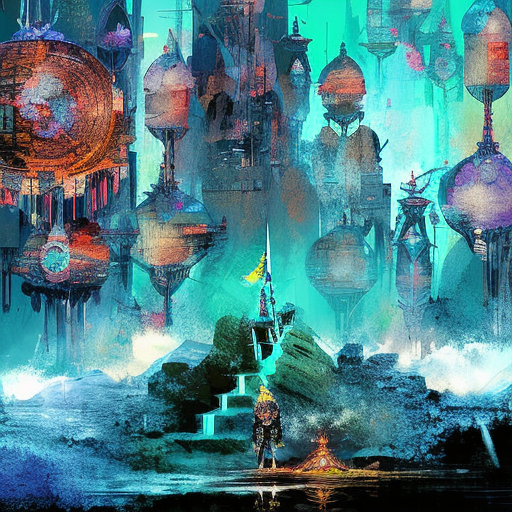One-line Summary:
Terry Pratchett’s “Nation” is a thought-provoking and humorous novel that explores themes of identity, survival, and the power of community in a world turned upside down.
A World Turned Upside Down
In “Nation,” Terry Pratchett introduces us to a parallel universe where a catastrophic tsunami wipes out an entire island nation, leaving only one survivor, Mau, a young boy on the cusp of manhood. Stranded on a deserted island, Mau must grapple with his grief and find a way to rebuild his shattered world.
Identity and Belonging
As Mau navigates the challenges of survival, he is joined by Daphne, a young British girl who was shipwrecked on the island. Together, they must bridge the gap between their different cultures and find common ground. Mau, who is deeply connected to his ancestral traditions, struggles with his identity as the last member of his tribe. Meanwhile, Daphne, who comes from a privileged background, questions her own place in the world and reevaluates her values.
The Power of Community
As more survivors arrive on the island, Mau and Daphne must unite them and create a new society. They face numerous challenges, including language barriers, cultural clashes, and the threat of hostile outsiders. Through their resourcefulness, resilience, and ability to find humor in even the direst situations, they manage to build a community that transcends their differences.
Key Takeaways:
- Identity is not solely defined by one’s heritage or upbringing, but by the choices one makes and the connections one forms.
- In times of crisis, the power of community and collaboration can overcome even the most daunting challenges.
- Humor and resilience are essential tools for navigating adversity and finding hope in the darkest of times.
“You are not who you think you are. You are not who others think you are. You are who you think others think you are.”
Terry Pratchett’s “Nation” is a captivating and thought-provoking novel that explores themes of identity, survival, and the power of community. Set in a parallel universe, the story follows Mau, a young boy who becomes the sole survivor of a devastating tsunami that wipes out his entire nation. Stranded on a deserted island, Mau must confront his grief and find a way to rebuild his shattered world.
As Mau grapples with his loss, he is joined by Daphne, a young British girl who was also shipwrecked on the island. Together, they must navigate the challenges of survival and bridge the gap between their different cultures. Mau, deeply connected to his ancestral traditions, struggles with his identity as the last member of his tribe. Meanwhile, Daphne, coming from a privileged background, questions her own place in the world and reevaluates her values.
Despite their differences, Mau and Daphne find common ground and work together to create a new society. As more survivors arrive on the island, they face numerous obstacles, including language barriers, cultural clashes, and the threat of hostile outsiders. However, through their resourcefulness, resilience, and ability to find humor in even the direst situations, they manage to build a community that transcends their differences.
Pratchett’s novel delves into the complexities of identity and belonging. It challenges the notion that identity is solely defined by one’s heritage or upbringing, emphasizing that it is the choices one makes and the connections one forms that truly shape who they are. Mau and Daphne’s journey highlights the importance of empathy, understanding, and acceptance in bridging cultural divides.
Another central theme in “Nation” is the power of community. In the face of adversity, Mau and Daphne demonstrate that collaboration and collective action can overcome even the most daunting challenges. The survivors on the island come from diverse backgrounds, yet they manage to unite and create a society that values cooperation, resourcefulness, and mutual support.
Throughout the novel, Pratchett’s signature wit and humor shine through, providing moments of levity amidst the serious themes. His writing style combines satire, adventure, and philosophical musings, making “Nation” an engaging and enjoyable read.
In conclusion, Terry Pratchett’s “Nation” is a thought-provoking and humorous novel that explores themes of identity, survival, and the power of community. Through the journey of Mau and Daphne, readers are reminded of the importance of empathy, resilience, and the ability to find humor in even the darkest of times.












